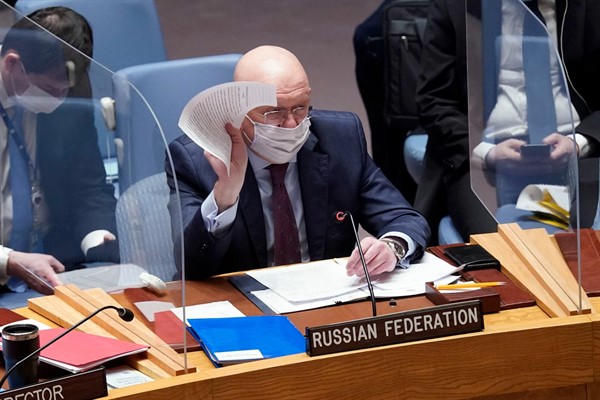There has been no shortage of analyses of what has motivated Russia’s decision to invade Ukraine. Many of these arguments seem to implicitly assume that Russia is putting its geostrategic interests ahead of adherence to Article 2 of the United Nations Charter, which prohibits the use of armed conflict to resolve disputes absent self-defense or authorization from the Security Council. Similar arguments—that Russia is brazenly flouting and even threatening U.N. Charter norms—are being made in political speeches by leaders and representatives of the Western powers and U.N. member states.
It is absolutely true that nothing less than the normative basis for the existing world order is at stake in this conflict. Russia’s unprovoked invasion of Ukraine is a throwback to what law professors Oona Hathaway and Scott Shapiro refer to as the “Old World Order,” where war was the legitimate means to address historical wrongs, correct for power imbalances or pursue any political objectives. It is precisely the kind of act that the U.N. Charter was meant to prevent, and one that European powers have by and large avoided—and collectively punished when other states attempted it—for the past 70 years.
But most analysts are missing something very important in the scramble to interpret Russia’s motivations and game out the potential implications of this conflict. For the past 20-plus years since 9/11, Russia has been, along with China, the Security Council’s most vocal advocate for the sanctitude of the U.N. Charter, particularly when calls to bend the rules prohibiting armed conflict against another state hinge on the protection of ethnic minorities, revenge for past wrongs or fear of a potential invasion.

